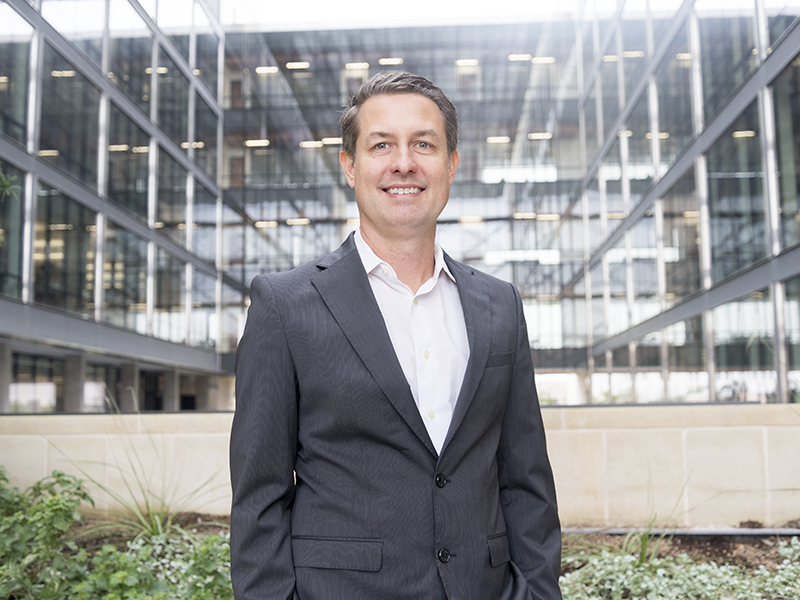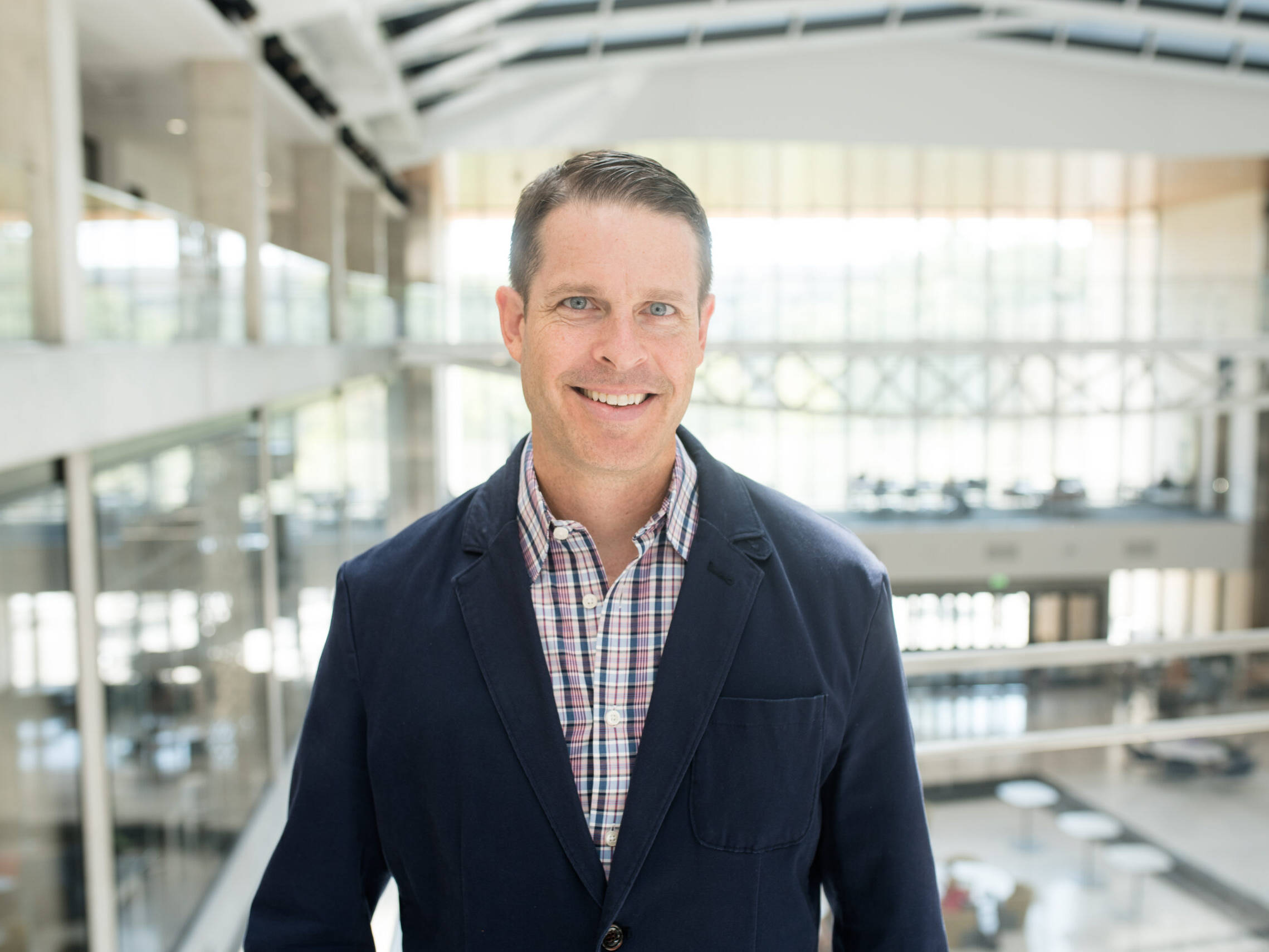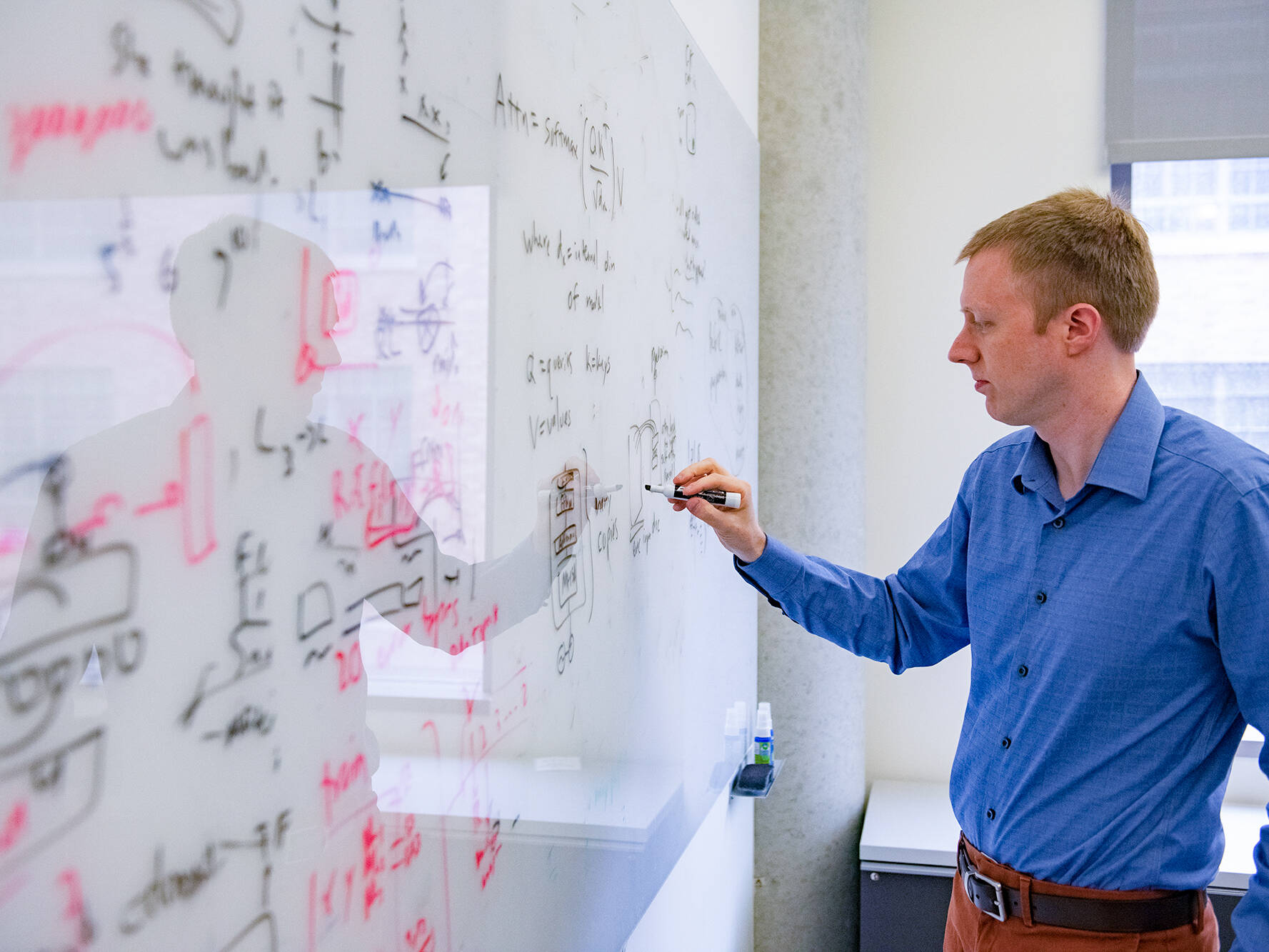Research

UT Austin and Amazon are partnering to foster a rich research community centered on key focus areas. This collaboration brings together subject-matter experts from different fields to create impactful research breakthroughs on a global scale.
Inaugural Fellow Ajay Jaiswal
Congratulations to the UT Austin Amazon Science Hub inaugural fellow, Ajay Jaiswal, a Ph.D. student from the School of Information. His work focuses on addressing fundamental bottlenecks for modern-day neural networks like training, transfer, inference efficiency, scalability and more. Through this fellowship, Jaiswal will take a “big-little” approach to making large foundational models that are highly expensive and compute-heavy more accessible.
Amazon business units engage with UT researchers to fund select non-competitive projects under sponsored research project agreements.
Ongoing sponsored research projects include:

2023 Grant
Fundamentals of Data-Driven Spectrum Sharing for 6G-era LEO Networks – Professor Jeffrey Andrews and his student(s) will carefully model and study the spectrum sharing problem between Kuiper and another LEO system. They will show upper and lower bounds of feasibility (i.e. SINR) given perfect and no knowledge of the associations of the incumbent system, respectively. Then will study and apply modern data-driven approaches from machine learning whereby the aggressor system (e.g. Kuiper) can learn to predict the incumbent associations with the help of real-time measurements by its own ground users.

2023 Grant
Positioning and Sensing on 6G LEO Networks – Todd Humphreys’ research team will consider new concepts for joint communications and sensing as these relate to dense LEO constellations. Specifically they will (1) examine the requirements for dense LEO constellations with inter-satellite links to perform accurate satellite orbit and clock estimation without onboard GNSS, and (2) develop a concept of operations for a dense LEO constellation to provide both broadband commu- nications and GPS-like positioning, navigation, and timing (PNT) to users.

2023 Grant
Chandra Family Department of Electrical and Computer Engineering faculty members Sujay Sanghavi and Alex Dimakis and Ph.D. student Georgios Smyrnis will receive funding for work on research related to CLIP models. This type of artificial intelligence focuses on identifying visual information and describing it in text. They hope to create smaller models that don’t take up as much computing bandwidth and can be combined to match the capabilities of larger models.

2023 Grant
Verifying LLMs, with LLMs – Assistant professor Greg Durrett and Ph.D. student Juan Diego Rodriguez from the College of Natural Sciences’ Department of Computer Science are working on large language models, like ChatGPT, that can perform a variety of tasks. Their research for this project focuses on fact-checking statements generated by these models to make sure they are accurate. This is particularly challenging as these models can produce long responses, requiring algorithms that can systematically check individual statements to identify errors.

2023 Grant
Towards Robust Robot 3D Perception in Urban Environments: The UT Campus Object Dataset – Professor Joydeep Biswas and Ph.D. student Amanda Adkins and M.S. student Taijing Chen are developing a novel state of the art algorithm for long-term joint object-visual SLAM, called ObVi-SLAM. They will compare ObVi-SLAM to other state of the art SLAM algorithms to measure its accuracy in real-world settings with drastic lighting and viewpoint changes. Further research steps include performing global loop closure and initialization beyond ObVi-SLAM.
Industrial Affiliates Programs (IAPs) deliver a mutually beneficial pathway for industry and UT Austin researchers to explore fundamental research topics together.
Amazon is a proud partner of the following UT Austin Industrial Affiliate Programs:
WNCG
The mission of the Wireless Network & Communications Group is to create a collaborative environment that supports research, provides highly relevant education and opportunities, promotes technical innovation, imagination and entrepreneurship in wireless networking, communications and data sciences.
Texas Robotics
Researchers in multiple departments work to advance the capability of robotics in numerous application spaces including social, surgical, rehabilitation, vehicles, drilling, manufacturing, space, nuclear, and defense.
iMAGiNE
The iMAGiNE consortium provides tools, methodologies, and knowledge for engineering the machines that support intelligent applications, from the smallest circuits to the largest systems. They work with machine learning, reasoning, and understanding from cloud to edge.



